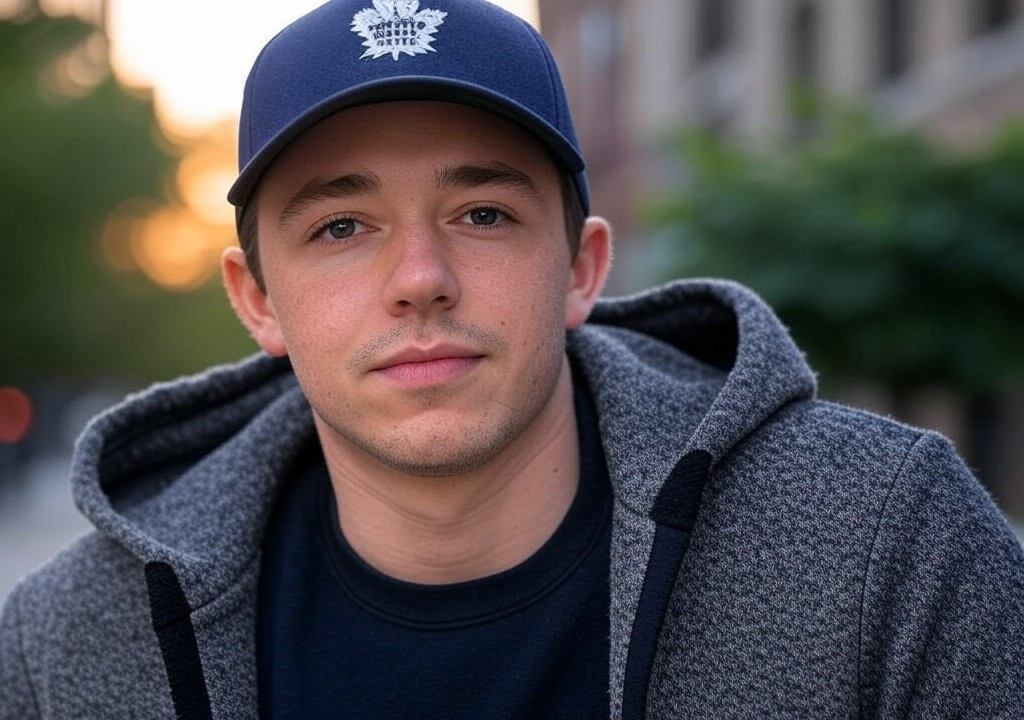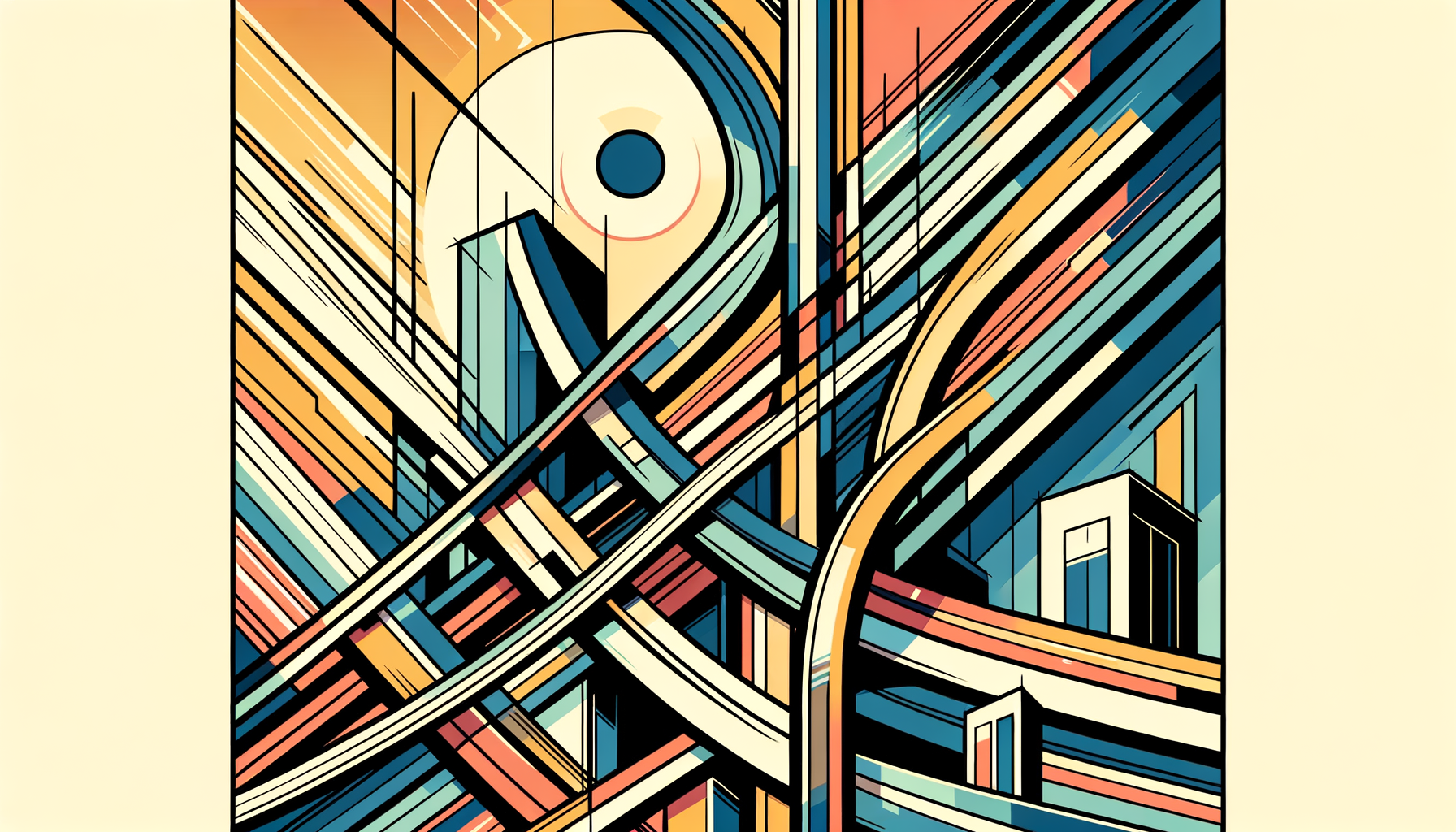I still think about her sometimes—the other version of me. The one who took a different exit ramp off life’s highway and ended up... somewhere else. Maybe “somewhere else” involved wearing heels that weren’t a choking hazard to public safety, or maybe her salads didn’t come with a side of existential dread. Who knows? All I know is, she’s out there. Somewhere. Living my “what if.”
Let’s rewind for context. Years ago, standing at a proverbial fork in the road, I chose Door Number One—a door that led to late-night deadlines, caffeine addiction, and a daily struggle to decipher Toronto’s mood-swing weather. Door Number Two, the one I left unexplored, was something entirely different. It was simpler, quieter, and, to be honest, uncomfortably tempting. In my case, Door Number Two involved staying with someone I loved because it felt safe, even when I knew that “safe” isn’t the same as “good.”
Spoiler: I walked. I swiped Door Number Two like a Tinder profile that didn’t vibe and moved forward, uncertain but determined. Now, years later, I wonder—was choosing uncertainty worth it? What’s the true cost of choosing one path over another?
Let’s break it down, folks. Call it the unofficial guide to navigating your personal Sliding Doors moment.
Commit to Your Choice: The Rule of “Yes, and”
Here’s the thing about decisions: once you make one, the universe doesn’t hand you receipts. It’s not like when you picked out that awful turquoise sectional and Ikea let you return it because it did not look the same in your living room. Big life decisions are character-building exercises, not customer service queries.
After I chose to leave that relationship, there were weeks (fine, months) where I felt stranded. Single for the first time in years, cooking dinners-for-one in the echo chamber of my tiny Toronto kitchen. I was 50 shades of lonely and second-guessing every darn thing. What if I hadn’t left? What if there were no better fish in the Tinder ocean, only sharks in bad sunglasses quoting “The Wolf of Wall Street”?
What I realized, once the dust settled, is the key isn’t obsessing over the “what if.” It’s throwing yourself into the life you did choose. Think improv comedy: when you’re given a “Yes, and” moment, you don’t stop to rehash “what could’ve been.” You take the prompt and run with it—the good, bad, and deeply uncomfortable. Resisting regret is an active practice, like going to the gym or resisting the urge to text your ex.
Redefine What “Better” Looks Like
Another revelation? The other version of you—the one that happened down that road not taken? She still has problems. Trust me, no one escapes having problems, no matter how good their Instagram game is. Maybe she didn’t break up with that partner, but now she spends her Wednesdays sitting through couple’s therapy where Jeff wants to talk about “emotional intimacy” again. (It’s always Jeff.)
The road not taken often looks lush and mysterious because we’ve only imagined the parts worth romanticizing. We don’t sketch in the unglamorous weeds: the tedious cycle of doing someone else’s dishes, the awkward silences over coffee, the hours deciding whether or not to just Netflix without the chill because you’re too tired for anything else. Relationships, even the good ones, require constant nurturing, compromise, and—not to get too real—a willingness to deal with someone looking over your shoulder as you grocery shop.
Instead of wondering what if, ask yourself: What about my current road is good—even great? (Answer: freedom, self-discovery, and the sheer delight of eating an entire pizza solo without judgment might be on that list.)
When in Doubt, Embrace the Plot Twist
Speaking of freedom—choosing uncertainty forces you to reevaluate your narrative. I stopped envisioning my life as bullet points and started treating it like a choose-your-own-adventure book. Every difficulty wasn’t an obstacle to overcome but a plot twist to lean into. (Cue the sappy credits, but it’s true.)
Learning to live without a roadmap was my greatest teacher. I traveled alone for the first time—a month in London writing essays by day, getting hopelessly lost in the backstreets of Camden by night. I said "yes" to group art classes even though being “painter adjacent” was far outside my wheelhouse. I opened myself up to the loud, messy thrill of Toronto’s dating scene—brunch dates, art gallery meetups, and walking tours of Riverdale until my cheeks hurt from laughing at poorly timed inside jokes. None of this would’ve happened if I’d stayed on autopilot with a choice that lacked courage.
Regret Doesn’t Get the Final Word (But It Visits)
Let’s be honest: the road not taken is seductive. It creeps into your consciousness when you read too many rom-coms or catch yourself binging “The Notebook” for emotional masochism. Regret will knock—whether it’s a momentary pang scrolling through an ex’s engagement photos or wondering if Vancouver was the career move that could’ve landed me in The Globe and Mail by now instead of juggling freelance deadlines.
But regret isn’t a villain; it’s more like a drunk friend at 2 a.m.—annoying, but helpful if you listen. Regret is really just your mind’s way of checking whether your current path is genuinely aligned with who you are now—not who you were when you made that decision. Would I make the same choice today that I made then? Honestly, yes. Because in the choice I made, I grew. I stumbled into lessons I couldn’t have learned any other way.
Own the Beauty of Doubt
The decisions we don’t make—staying put, saying yes, sticking to what’s familiar—are as much a part of us as the ones we do. At the end of the day, the beauty isn’t in the road you did or didn’t take. It’s in owning the one you’ve paved, potholes and all. Life is messy and uncertain, and sometimes looks like “La La Land” but ends more like “Marriage Story.” That’s fine. In choosing one path, we give it meaning—even when we don’t have all the answers.
So, cheers to you, my fellow decision-makers. Whichever road you took—the one less traveled, the one your GPS rerouted, or the one your heart reluctantly picked—trust me: it’s enough. You’re enough. And the other version of you? She’s probably out there wondering who you are and thinking she made some pretty great choices too.




















